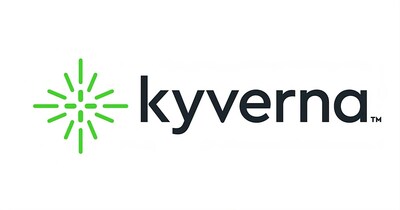Kyverna Therapeutics, Inc. (Kyverna) announces today the publication in Med1, of a report describing the first use of KYV-101, a fully human anti-CD19 chimeric antigen receptor (CAR) T-cell product candidate, in two patients suffering from progressive multiple sclerosis (MS) as part of a named patient program for critically ill patients after both patients failed to respond to conventional therapies.
|
Two patients were treated with KYV-101, a fully human anti-CD19 CAR T-cell product candidate, in Germany as part of a named patient program after failure to respond to conventional therapies The treatment resulted in an acceptable safety profile, with no observed clinical signs of early neurotoxicity, warranting larger clinical studies in subjects with multiple sclerosis EMERYVILLE, Calif., March 29, 2024 /PRNewswire/ -- Kyverna Therapeutics Inc. (Kyverna), a patient-centered, clinical-stage biopharmaceutical company focused on developing cell therapies for patients suffering from autoimmune diseases, announces today the publication in Med1, of a report describing the first use of KYV-101, a fully human anti-CD19 chimeric antigen receptor (CAR) T-cell product candidate, in two patients suffering from progressive multiple sclerosis (MS) as part of a named patient program for critically ill patients after both patients failed to respond to conventional therapies. "We are very pleased about offering this potentially paradigm-shifting treatment opportunity to patients that have exhausted other medical recourses," said Christoph Heesen, M.D., professor for clinical and rehabilitative MS research at the University Medical Center Hamburg-Eppendorf in Hamburg, Germany, and senior co-author. "Emerging findings indicating that this approach may affect disease biology in the central nervous system are promising, as preventing disease progression remains one of the most difficult challenges in MS therapy." "Exploring the safety profile of CAR T administration in this population and hopefully establishing that it compares favorably to hematopoietic stem cell transplant may bring the cell therapy approach to a larger number of patients in need," said Nicolaus Kröger, M.D., professor of Medicine and medical director, Department of Stem Cell Transplantation at the University Medical Center Hamburg-Eppendorf in Hamburg, Germany, and senior co-author. "If safe administration can be replicated in other patients and efficacy be formally established in clinical trials, this may bring a relevant therapeutic option to patients with MS." "We are committed to transforming the standard of treatment for patients living with multiple sclerosis," said Peter Maag, Ph.D., chief executive officer of Kyverna. "The pioneering work done with KYV-101 by medical teams in Hamburg and in our trials in the U.S. helps build the data backbone needed to further advance our knowledge and hopefully accelerate development of CAR T-cell therapies in autoimmune diseases." CAR T-cell therapy involves modifying a patient's T cells to recognize and remove B cells in the patient's body. CD19 CAR T-cell therapy specifically targets CD19, a protein expressed on the surface of B cells, which are involved in various types of autoimmune diseases. About Multiple sclerosis (MS) About KYV-101 KYV-101 is currently being evaluated in sponsored, open-label, Phase 1/2 trials of KYV-101 in patients with lupus nephritis, an autoimmune disease in which more than half of patients do not achieve a complete response to current therapies and are at risk of developing kidney failure. Additionally, FDA's IND clearance has been obtained for Phase 2 trials of KYV-101 for multiple sclerosis and myasthenia gravis, and a Phase 1/2 trial for systemic sclerosis. We believe that the differentiated properties of KYV-101 are critical for the potential success of CAR T cells as autoimmune disease therapies. KYV-101 is also being evaluated in investigator-initiated trials for multiple indications in multiple geographies. About Kyverna Therapeutics Our lead CAR T-cell therapy candidate, KYV-101 is advancing through clinical development with sponsored clinical trials across two broad areas of autoimmune disease: rheumatology and neurology, including Phase 2 trials for multiple sclerosis and myasthenia gravis, a Phase 1/2 trial for systemic sclerosis, and two ongoing multi-center, open-label Phase 1/2 trials in the United States and Germany for patients with lupus nephritis. Kyverna's pipeline includes next-generation chimeric antigen receptor (CAR) T-cell therapies in both autologous and allogeneic formats with properties intended to be well suited for use in B cell-driven autoimmune diseases. Forward-Looking Statements For more information, please visit https://kyvernatx.com. Kyverna Media Contact: 1. Fischbach et al., Med (2024), https://doi.org/10.1016/j.medj.2024.03.002
SOURCE Kyverna Therapeutics |
||
Company Codes: NASDAQ-NMS:KYTX |





